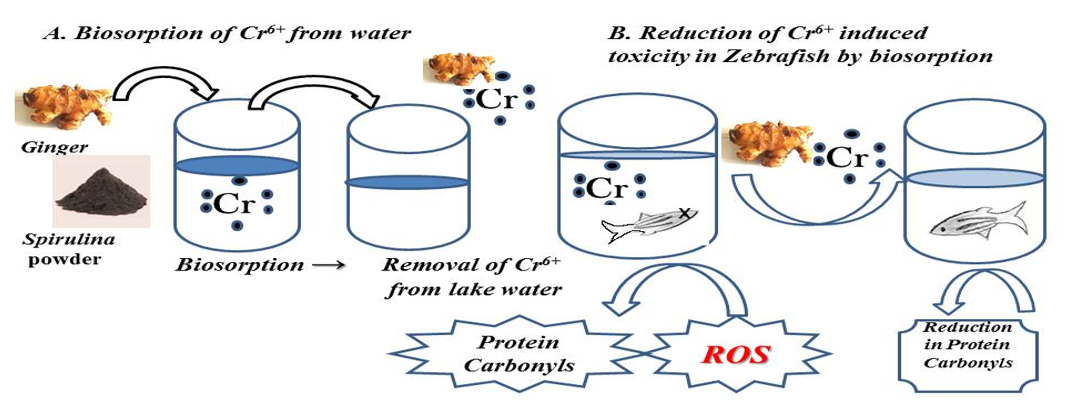Chemically modified Ginger and Spirulina for bioremediation of Hexavalent Chromium from polluted water

DOI:
https://doi.org/10.62110/sciencein.jist.2024.v12.782Keywords:
Zebrafish, Protein carbonyls, Biosorption, bioremediation, biosorbents, chromium, heavy metal, Spirulina maxima, Zingiber officinale, toxicityAbstract
Heavy metals are toxic pollutants that are persistent in air, water and soil. These metals are non-biodegradable and cause variety of disorders due to their bioaccumulation in living organisms. Chromium is one such hazardous heavy metal found in effluents of tanneries, electroplating industries, etc. The current study presents natural biosorbents and their chemical modification and immobilization as a low-cost alternative for uptake of hexavalent Chromium. Ginger (Zingiber officinale) and Spirulina maxima are used as biosorbents in the current study. The physicochemical parameters required for biosorption were optimized by batch adsorption experiments to attain maximum adsorption of upto 70% in lake waters of Bangalore city. The maximum adsorption obtained by Z. officinale - 38%, 78%, 88% and S. maxima, 22%, 48%, 39% was obtained using natural, chemically modified and immobilized biosorbent respectively in lake water. Treatment in lake water not only reduced the metal concentration but also mitigated the oxidative stress in the liver homogenates of zebrafish, depicting the effectiveness of bioremediation methodology and biosorbent used in the current study.
URN:NBN:sciencein.jist.2024.v12.782
Downloads
Downloads
Published
Issue
Section
URN
License
Copyright (c) 2023 Bhanu Revathi Kurella, Aishwaraya Srinivasa Ramanujan, Bhagyashree Nagaraj, Rajeswari Narayanappa, Shinomol George Kunnel

This work is licensed under a Creative Commons Attribution-NonCommercial-NoDerivatives 4.0 International License.
Rights and Permission







